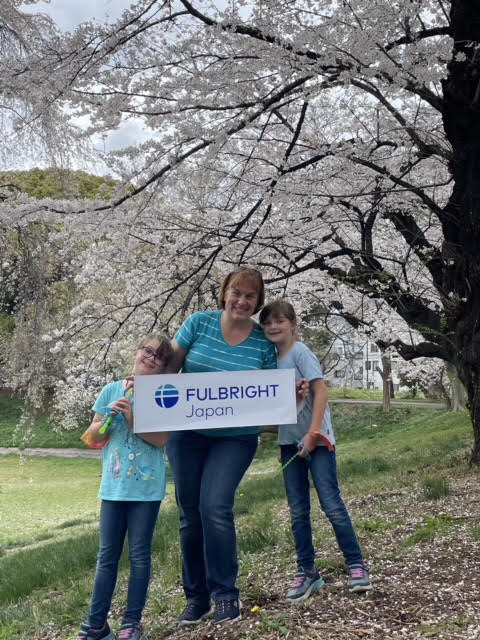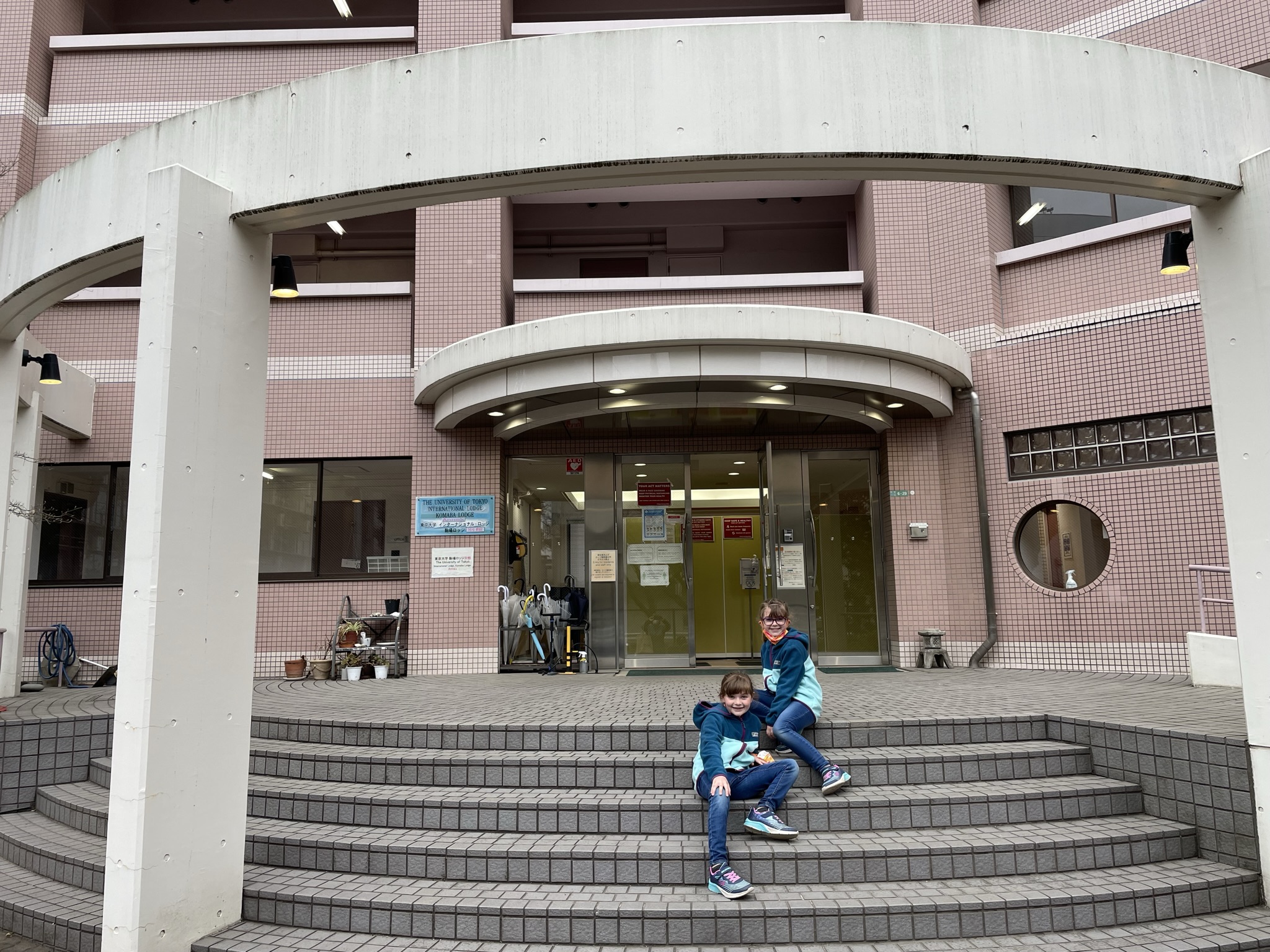
Teaching all female students at Kyoritsu Women’s University was an amazing experience.
My Fulbright Story

Teaching all female students at Kyoritsu Women’s University was an amazing experience.



Dr. Christina Scott is an Associate Professor of social psychology at the Department of Psychological Sciences at Whittier College, USA. She specializes in the psychology behind sexuality, gender, and how these concepts are portrayed in the American media.
A single mother by choice of two twin daughters, Dr. Scott wanted her daughters to see more of the world and understand it from a broader and more inclusive perspective, rather than an America-first one. Unfortunately, with the COVID-19 pandemic hitting the country, Dr. Scott had to stay indoors for the better part of two and a half years, not least due to the vulnerable health of one of her daughters.
Against this backdrop, the Fulbright Program, which Dr. Scott came to know about from her colleagues and from reading over the years, started to look like a light at the end of a dark tunnel. “It was something I could believe in that would better my family during these dark times,” says Dr. Scott. To her, Japan represented a country that really respected children and provided a safe environment for them, which was one of her top priorities.
She decided to apply for the Fulbright Program after taking the time to learn its ins and outs, but there was a challenge: there were no psychology-related positions open. Nevertheless, she applied for a position to teach by structuring a course based on her research - centering around how sex and gender are portrayed in American media, an idea that was well received.
In March 2023, Dr. Scott and the twins arrived at Tokyo, where they would stay for the next five months. Dr. Scott taught at both the University of Tokyo and Kyoritsu Women’s University, which proved to be quite an interesting experience, as the universities had markedly different demographics and students and faculty tended to engage with her and her classes in unique ways.
She was surprised and humbled by the respect that her students as well as most Japanese people showed toward her, the twins, and toward each other. Her daughters’ experience at the public elementary school was also notable: even though the language barrier presented a considerable hurdle, the twins braved the challenges and managed to assimilate by using a combination of translation tools, body language, and expressions.
Dr. Scott notes that bringing her daughters to Japan made the overall experience much more enriching, as they gave her the opportunity to connect with other Japanese families, teachers, and the community as a whole. In many ways, she felt that the three were akin to ambassadors of the U.S. in a foreign land, who were not just trying to teach the American culture, but also learn as much as possible in return.
Even today, the family stays in touch with those they befriended in Japan; the twins share videos showing American culture with their former classmates to keep the cultural exchange flowing. They are eager to visit Japan in the near future, hopefully through an international teaching program. “I feel like we brought back home much more than we left behind. Not a day goes by where we don’t discuss how certain things are done in Japan,” says Dr. Scott. She appreciates that her daughters managed to develop a different worldview where people with differing backgrounds can learn from each other. Moreover, she notes that she herself brought back valuable insights that enabled her to improve her courses in American universities.
For people considering the Fulbright Program, Dr. Scott encourages them to take the leap of faith but cautions against doing it on the spur of the moment. She also advises applicants to learn about Japan so they understand and care about where they are going. “I would say, be very mindful. Get as much information as you can, not just about the teaching, but about the culture itself,” she concludes.


